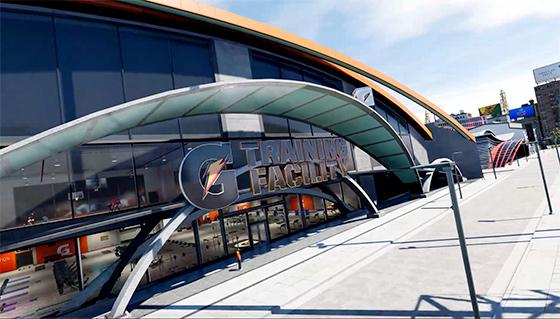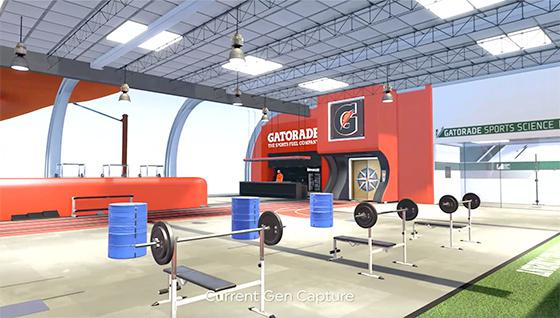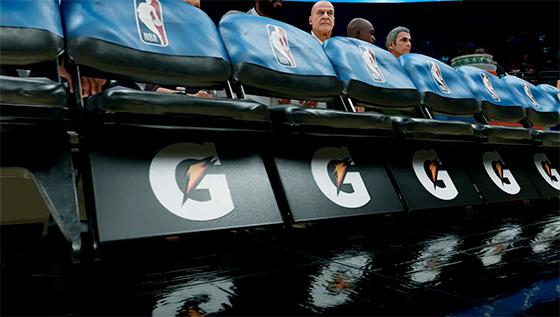Commentary
PepsiCo's Gaming ZEN: Be the Ball
- by Steve Smith , Staff Writer @popeyesm, June 17, 2022
Gaming is as huge as it has been hard for marketers to crack. Advertising traditionally is all about interruption and distraction, but players engage their favorite shooter or tile-match app specifically to avoid distraction, to immerse their senses, to focus attention. Marketers mess with that sort of Zen at their own peril.
PepsiCo, however, has been in the space for over a decade and even has a team dedicated to the medium at the same level as their groups focused on music and movie partnerships. Paul Mascali, leads that effort. And he tells Brand Insider this week that enhancing gameplay, not distracting from it, remains the simple rule of marketing into game experiences. The goal is not just to be in the game, but to think like a game designer. You can listed to the entire podcast at this link.
advertisement
advertisement
MediaPost: PepsiCo has not only been marketing in and around gaming but even generated product specifically for
gaming.
Paul Mascali: Yes, on the Mountain Dew brand portfolio back in 2018 we launched Mountain Dew Game Fuel, which is a product specifically designed for the gaming audience. We leveraged insights from multiple professional players and teams that we have partnerships with to curate this product, specifically for that hardcore gaming audience, with ingredients shown to improve accuracy and alertness. Innovations on packaging itself, from a no slip tactile grip to a resealable lid on the can to protect precious equipment - so very much born out of the insights we took from our professional gaming talent.
MP: What do most marketers misunderstand about
this audience and how to get into games marketing?
Mascali: I think the biggest misconception that traditional marketers have is really around authenticity around reaching gamers. Everyone really feels that this audience is very brand averse so they don't like traditional advertising. But realistically, they just don't like bad advertising or advertising that doesn't really get them. For us it's really crucial to understand why consumers are consuming this type of content and being an additive to the experience itself in order to resonate with them.
MP: You've said that marketing into gaming requires thinking
like an endemic, that is to think like a game-maker, rather than a traditional advertiser. Can you use some examples for how you executed against that idea? What's a good example of getting
authenticity right?
Mascali: From a PepsiCo standpoint, personally, I’m very proud of a lot of the influencer partnerships that we have built over the past three or four years. As a real true partner, and not just through some passive sponsorship, giving them some sense of ownership in the creative and the content that we’re producing for a brand perspective.
I 'd say one of the best examples we have is a relationship with Dr Disrespect. He's been an integral part of the Game Fuel brand. We've done everything from creating custom media creative with him, creating a music video and song that his team entirely wrote, produced, filmed and even creating our own limited edition flavor of Game Fuel, which sold out in 72 hours. And, from my standpoint, I feel like the work speaks for itself, where we've been able to really natively [immerse] ourselves within his Community, his fandom, and make sure everything really feels authentic to his tone of voice in his world.
MP: I was particularly impressed by the integration that you
did with Gatorade into NBA2K. Tell us what that integration was and why you think it worked well.
Mascali: This was really all born at the insight that gamers wanted more realism within their traditional sports games. The reason they're playing these games is to
live out their dreams and their aspirations of potentially being a professional athlete. So all of these games are striving to be as realistic as possible. When we're able to natively integrate our
brands like Gatorade into the sideline coolers…this actually just provided more value back to the gaming audience, because it was replicating the experience when they're watching games on
TV.
2K is a great example of how we've pushed the envelope to further embed Gatorade. Our marquee placement is the Gatorade Training Facility. It's a full gym that has been built out featuring Gatorade branding, product, and brand messaging, where players can actually go interact with our products, “work out” virtually, and level up their NBA player in real time
.We're helping gamers improve their play style in game and adding that value back to them. It's also been a really effective way for us to communicate key brand messaging, in terms of product benefits and so on.
MP: How do you measure ROI and impact in something like
this?
Mascali: We know NBA fans are 192% more likely to play a basketball related game. So for us, this was just another kind of media channel, the same way we leverage TV, social, digital, to reach the core NBA consumer and make sure we're maximizing the property that we're aligned with.
We do work very closely with the 2K team to receive data around how many impressions we've done in game across all of our different placements, whether its sideline signage or viewership of brand moments within the training facility, etc. We also get a high degree of metrics within how many players actually engage with the product and participate in different brand actions within the facility.
And then lastly, we're doing a lot more research, both with 2K and independent sources, just to see how the effects of these partnerships moved the needle from a brand perspective.
MP: In another effort, you have a long running rewards program that you have with Call of Duty and Mountain Dew, that would seem like that has a little bit
more of a performance aspect.
Mascali: We've been working with Call of Duty for the past three years
on the Mountain Dew brand, specifically their Q4 game releases. Any time they're picking up a bottle of Mountain Dew, they're getting some sort of unlock within game. Traditionally that takes the form
of Double [experience points] or character skin or cosmetic items to help them express themselves differently in the game.
We do a lot to measure success from a 360 perspective. Most important obviously is sales, knowing that this is a direct consumer program that we activate on a national basis. Seeing how we're moving the needle and driving velocities for our products and leveraging, kind of Call of Duty, that linchpin to unlock incremental customer support.
MP: I wanted to talk about esports versus gaming because I think we tend to lump them together. Esports would seem to have more of the contours of
traditional league, team and venue sponsorships.
Mascali: There's a little bit of confusion between the two, and how they intersect. We at PepsiCo defined esports as game competition played for monetary prize and/or recognition. So, again, I can go home and I can pick up the controller and jump into a game, the Call of Duty, Warzone, with my friends, take it very seriously, but it's not necessarily esports, its traditional gaming. If I entered a tournament, started training, started playing for prizing, that's when it really kind of makes that crossover.
And from our standpoint, I think it's really important to kind of see where the majority of consumers are. Esports is still around a $1-$2 billion industry compared to gaming globally, which is $180 billion. Esports is definitely fast growing, it's exciting, definitely spiked in viewership over the past five or so years, but we still view gaming as a much larger opportunity here with a much larger amount of consumers. But that's not to say that esports isn't a big part of our larger strategy.
A good example is a relationship with Mountain Dew and the CDL with a professional Call of Duty League, where we do employ similar traditional sports sponsorship tactics here to reach our consumers in broadcast messaging, leveraging our teams and players similar to how we would a traditional NFL or NBA player, really making sure we're staying top of mind with avid esports fans that are consuming content.
MP: PepsiCo has elevated gaming to the same level in your organization internally as music and movies. Does your group have to be organized, if at all, differently from some of these
other media groups?
Mascali: We're following a pretty similar model here, creating kind of specialty teams within the organization. So the same way we have folks dedicated to the NFL or the NBA or music properties, that's kind of my role within the company specifically around gaming. And all of our specialists are true endemics in their respective fields, and I think that's probably the biggest key from a gaming perspective here.
I, myself, plug in multiple times a week, I’m constantly on Twitch, I’m constantly on YouTube, watching creators and trying to consume content, trying to better understand who our core consumer is. I think that's really key to making sure that we're making informed and accurate decisions in the space.
Making sure we internally have a good understanding of the space is really how our best line of defense from any missteps or mis-communicating back to that core gaming audience. So while the brand team is going to own their respected brands, have a great understanding of their objectives and their goals and how they reach consumers, we have just an extra layer of expertise to make sure we can quarter turn their strategies to effectively reach this audience.
MP: The vast majority of gamers are not playing hardcore action or sports games. They're playing much more laid back casual puzzlers or world builders, and
often on their phones. What's the plan for reaching them?
Mascali: I'd say a lot of our focus has been really nailing that core and hardcore gaming strategy, mainly for our “semi endemic” brands, Mountain Dew, Doritos, Rockstar Energy.
That said, myself personally, I think there's a lot of opportunity to expand across our portfolio. A lot of gamers aren't playing the traditional Call of Duty; they're playing Candy Crush or Words with Friends or FarmVille, and we think that that's a good overlap with the other products that we have in our portfolio.
So we're starting to shift a lot more focus to figure out how we can take the learnings and the strategies we built for that core and hardcore audience and start adapting them across the casual in the mobile space. I'd say we're still a bit early. We've done several test and learns last year. We ran a campaign with Mountain Dew Energy and Candy Crush that we saw some great returns on. We're also working with Call of Duty and Call of Duty Mobile on the Mountain Dew brand, but I’d say we're still in the early days internally here. I’ve [been] kind of building out that playbook.
MP: Leaning into the metaverse – many of us would
argue that live immersive digital interaction has been with us in gaming for years – in World of Warcraft, Fortnite, etc. What have you learned so far about these worlds, about what
marketer involvement in a future metaverse might look like?
Mascali: First off, I definitely understand that sentiment as well. A lot of what the community has kind of been dubbing the “metaverse” has been around here for a very long time.
And in my opinion, PepsiCo has been a leader in these “metaverse” style experiences, with some of the activations we've done within the past, like the NBA 2K, ingraining our brands, like Gatorade, Mountain Dew, in these digital environments and reaching our consumers where they're consuming content.
I think some of these past programs have given us a
bit of a first mover advantage in better understanding how consumers engage with brands in these full digital environments. So from our standpoint, we're viewing gaming as a kind of entry point, our
pathway into what will be the future metaverse whether that's five to 10 years in the future.









